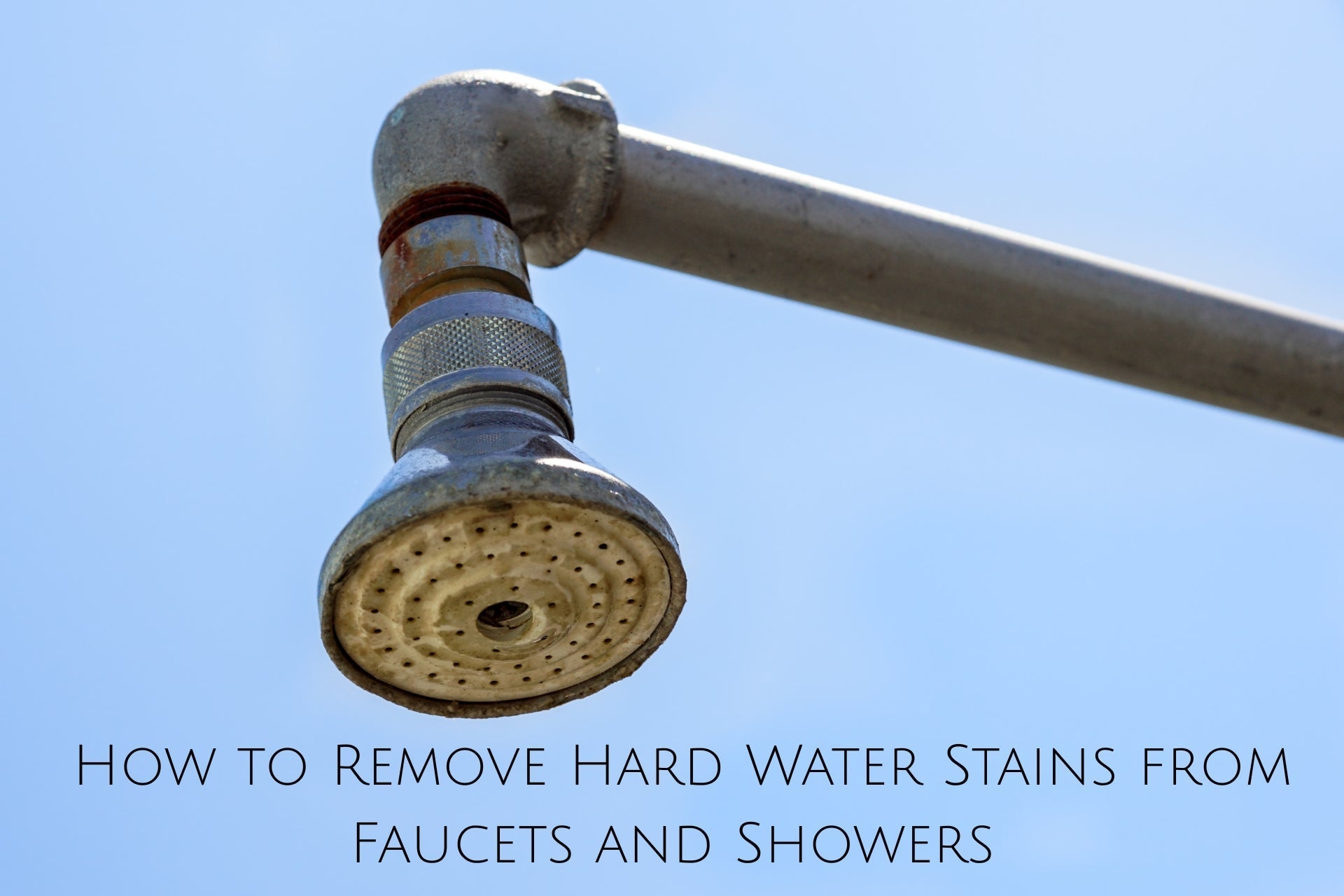Hard water stains are one of the most frustrating and common bathroom issues. These cloudy white or greenish deposits around faucets, showerheads, and tiles are caused by mineral buildup, especially calcium and magnesium in hard water.
If left untreated, they can permanently damage your bathroom fixtures and dull the look of your space. But the good news? You can get rid of them with simple, affordable methods.
Here’s everything you need to know about removing hard water stains from faucets and showers, using both natural and commercial solutions.
What Are Hard Water Stains?

Hard water stains are white, chalky, or crusty deposits caused by the evaporation of mineral-rich water. Over time, the calcium, lime, and magnesium in the water build up on metal surfaces like:
-
Faucets
-
Showerheads
-
Tap handles
-
Glass shower doors
-
Tiles
They’re not only ugly but can also clog nozzles and reduce water pressure.
Use White Vinegar – Natural & Effective

White vinegar is a mild acid that breaks down mineral deposits naturally. It’s one of the best and most affordable methods.
Steps:
-
Soak a Cloth – Soak a microfiber cloth in warm white vinegar.
-
Wrap the Fixture – Wrap it around the affected faucet or showerhead.
-
Let It Sit – Leave it for 30–60 minutes to loosen the stains.
-
Scrub Gently – Remove the cloth and scrub with an old toothbrush or sponge.
-
Rinse and Wipe – Rinse with water and wipe dry with a clean cloth.
💡 For extra stubborn stains, repeat the process or heat the vinegar slightly.
Baking Soda + Vinegar Paste (For Tougher Stains)

This DIY paste helps remove stains without scratching your fixtures.
Steps:
-
Make the Paste – Mix 3 tablespoons of baking soda with 1 tablespoon of vinegar.
-
Apply to Fixture – Spread the paste on the stained areas.
-
Let It Sit – Leave for 15–20 minutes.
-
Scrub – Use a soft-bristle brush to scrub gently.
-
Rinse Off – Rinse thoroughly and dry.
Lemon Juice – Nature’s Descaler

Lemon contains citric acid, which works like vinegar to break down mineral buildup.
How to Use:
-
Cut a lemon in half and rub it directly on the stained area.
-
Let the juice sit for 10 minutes.
-
Scrub gently and rinse.
🍋 Bonus: It leaves your bathroom smelling fresh!
Use a Commercial Limescale Remover

For severe buildup, use a store-bought descaler or cleaner formulated for hard water stains.
-
Wear gloves.
-
Test on a small area before full application.
-
Avoid using on delicate or coated surfaces.
Deep Cleaning Your Showerhead

Over time, showerheads can clog with calcium. Here's how to clean it:
Option A: Vinegar Bag Method
-
Fill a plastic bag with white vinegar.
-
Place it over the showerhead and secure with a rubber band.
-
Let it soak for 1–2 hours.
-
Remove, scrub, and rinse.
Option B: Dismantle & Soak
-
Unscrew the showerhead and soak it in vinegar for a few hours.
-
Scrub and rinse before reinstalling.
Bonus Tips for Prevention

-
Wipe down your fixtures daily to prevent buildup.
-
Install a water softener to reduce hardness in your home.
-
Use a squeegee or microfiber cloth to dry surfaces after each shower.
-
Clean fixtures weekly with vinegar spray.
Final Thoughts

Hard water stains may seem stubborn, but with the right technique and consistency, you can keep your faucets, showerheads, and taps sparkling clean. Regular maintenance is key to preserving the shine and lifespan of your bathroom fixtures.
If you're buying high-quality, rust-proof and hard water-resistant bathroom fixtures, check out our collection at Koospark.com.




